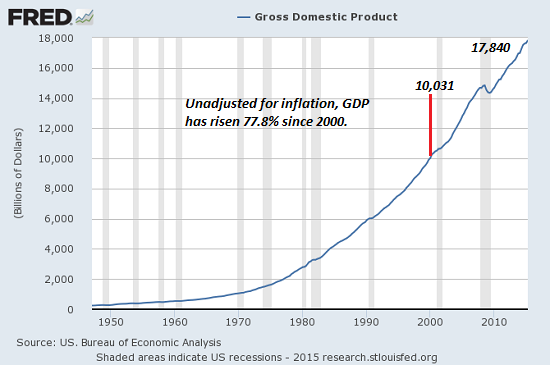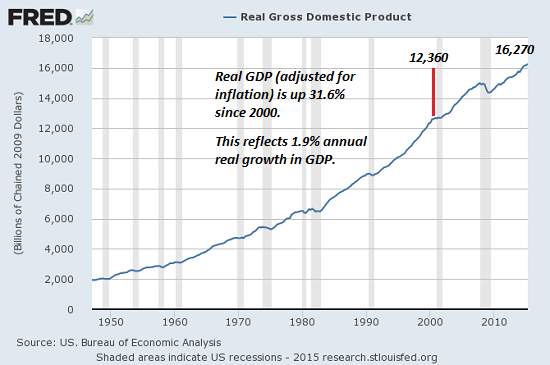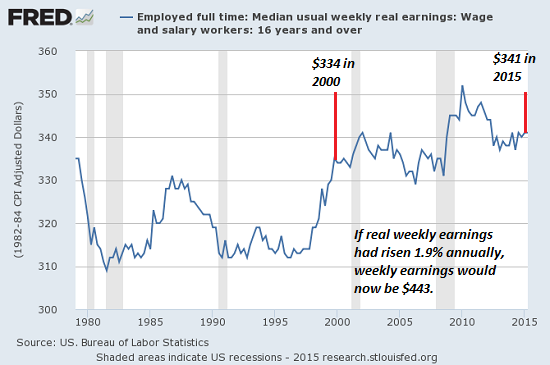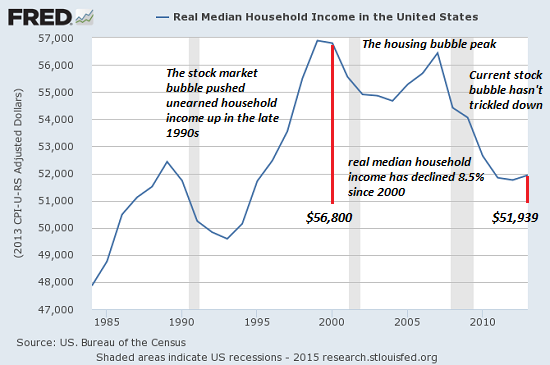Where Did the GDP "Growth" Go? Not into Wages
August 6, 2015
How can the economy grow by roughly one-third in real dollars while real median household income drops like a rock?
Based on gross domestic product (GDP), the U.S. economy has grown smartly since 2000: GDP rose from 10,031 in 2000 to 17,840 in mid-2015. That's an increase of 77.8%.

If we adjust GDP for inflation, we get what's known as real GDP, which increased 31.6%: from 12,360 in 2000 to 16,270 in mid-2015. This works out to a real annual increase of about 1.9% annually.

It would be natural to expect full-time employees' wages and salaries to rise at about this same rate as the economy expanded. But real median weekly earnings (wages and salaries) increased a grand total of $7 in the past 15 years: from $334 per week to $341 per week.

If wages and salaries had risen at the same 1.9% annual rate of real GDP growth, median weekly earnings would be $443, not $341. That's $102 more per week. But weekly median earnings for full-time workers rose only $7 per week, not $102 per week.
In other words, the growth in real GDP hasn't trickled down to wages and salaries.
Real household income--which includes both earned income and unearned income such as dividends and interest--has plummeted 8.5% since 2000. This is a striking contrast with real GDP growth of 31.6%: the economy has expanded 31.6% after adjusting for inflation, while real median household income has declined 8.5%.
If real median household income had grown at the same 1.9% annual rate of GDP, it would now be $75,000 a year, rather than $52,000.

So where did all this growth of the economy end up? How can the economy grow by roughly one-third in real dollars while real median household income drops like a rock and real wages/salaries are essentially unchanged for 15 years?
You can check these projections based on 1.9% annual growth for yourself with a simple Excel spreadsheet.
NOTE: Contributions/subscriptions are acknowledged in the order received. Your name and email remain confidential and will not be given to any other individual, company or agency.
|
Thank you, Larry T. ($150), for your outrageously generous contribution to this site-- I am greatly honored by your steadfast support and readership. |